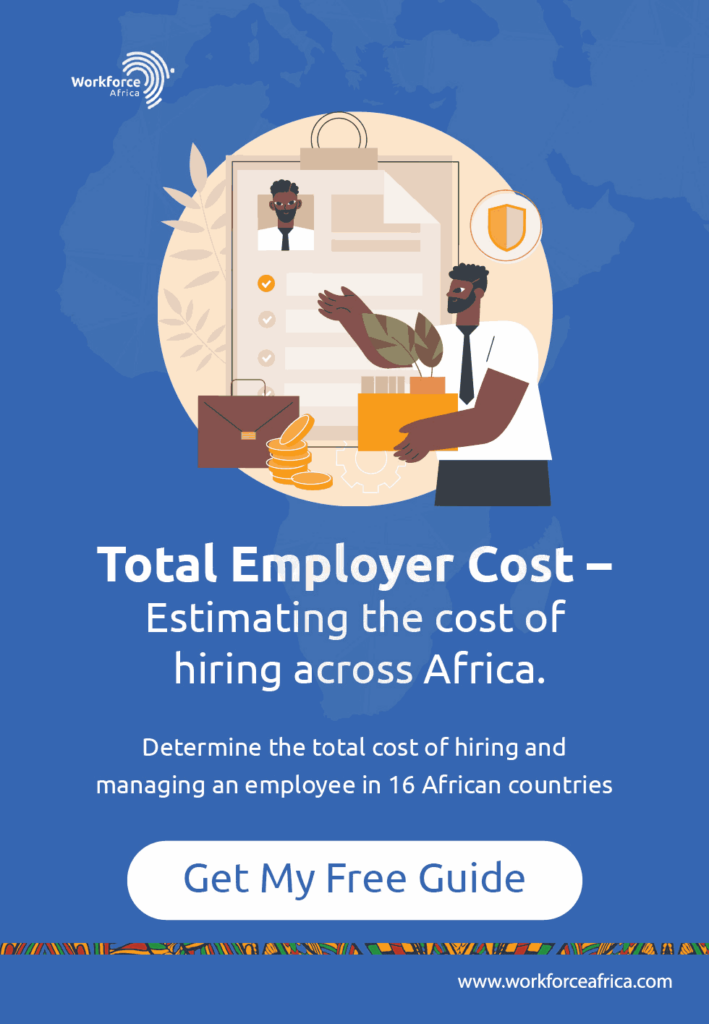

This article outlines five best practices for ensuring compliance in Africa.
The practices include understanding local laws, implementing robust compliance programs, engaging in due diligence, fostering transparency and accountability, and staying updated and adaptable to regulatory changes.
These practices help businesses navigate the regulatory landscape and mitigate risks associated with non-compliance in Africa.
Global Compliance — Maintaining compliance refers to your business following the rules and regulations and the overarching labour laws in each country you intend to do business.
Unfortunately, many global companies make compliance mistakes when expanding into Africa leading to legal challenges and workflow disruptions.
This article will help to navigate the required laws and regulations to ensure businesses stay compliant when expanding to Africa.
Global compliance is the process companies must follow to maintain laws, standards, and regulations that apply as they expand into new countries.
There are two (2) elements to becoming globally compliant: local compliance and compliance with international laws.
When expanding into Africa, it is necessary to maintain compliance with the rules of the country a business is expanding into. This is known as local compliance. For example, a company must comply with each country's rules and regulations concerning payroll, employment, or offboarding.
On the other hand, some global compliance rules apply across international borders. These rules, known as international laws, may include product standards, data protection, etc.
Although each country has rules regarding businesses expanding into their jurisdiction, there are some commonalities across the board. Here are some standard rules across Africa:
This is the obligation for businesses to pay taxes in any African country they plan to do business. Although tax rates may vary, but it is applicable when a business is permanently established in an African country.
How these taxes are paid also varies, but it is important to know the need to comply with taxes in any African country.
Most African countries have equal opportunity laws preventing discrimination when hiring. Grounds of discrimination or harassment vary by country, but may include sexual orientation, gender, ethnicity, and disability.
Similarly, many African countries have minimum employee benefits required by law. These basic entitlements include the minimum wage, sick leave, paid time off (PTO), etc. Some countries also have paid parental leave and insurance.
Most African countries now have anti-money laundering and counter-terrorism laws for companies with a permanent establishment in their country.
Several of these regulations include a programme for monitoring large transactions and training employees to protect against money laundering.
The purpose of global compliance is to identify and avoid possible red flags for businesses. Maintaining compliance also helps employees act responsibly.
Regulatory compliance ensures organisations mitigate risks and meet the requirement to operate smoothly. Maintaining compliance can help companies and their employees run at peak performance and save costs while they satisfy their customers and imprint a good experience on their minds.
The concept of compliance in Africa is to ensure business obeys the statutory laws responsibly. These are some of the benefits an organisation gains by maintaining compliance across the African continent;
Trust is one of the key factors that contribute to a business’s reputation. The public will immediately lose trust when a company is involved in legal issues.
Therefore, it is important to abide by compliance laws to build a positive reputation in the African market.
Companies that prioritise compliance – and demonstrate this to their customers – earn customer trust and loyalty. Customers who trust a brand patronise their services more frequently and tell more people about their experience.
Because customers always want to do business with their trusted brands, earning their trust ensures a company directly impact its bottom line.
When a company prioritise compliance, it sends a message to its employees – remote or expatriates – about the importance of complying with regulatory statutes.
As a result, employees have more incentive to be conscious about their participation in compliance and are more engaged in compliance procedures.
By maintaining compliance, a business can be more efficient and scalable with its processes.
This is because compliance companies can streamline their processes while remaining confident that customer data is safely and accurately stored. As a result, a company can maximise its efficiency while delighting its customers.
When a company fails to comply with laws and regulations, it risks the ethics of business and the ability to continue its global expansion plans. In addition, the company may face:
There is no one-size-fits-all method for maintaining compliance in Africa. However, there are certain practices companies can take to help their business avoid significant compliance mistakes.
These are some of the best practices to follow when expanding into Africa to ensure a business maintains compliance:
When expanding to Africa, the best place to start is to review the big picture. First, a company must review the current business regulations of the African country it plans to establish a presence in.
Doing this will ensure the business complies with all rules and regulations that must be followed when expanding.
An organisation must deliberately plan how its business will handle the rules and regulations associated with setting up and operating smoothly in a new location.
For example, delegating certain duties to specific employees and creating a calendar of when tasks should be completed will help to ensure compliance.
As with any business, communication is critical. When an organisation implements new practices and plans, it must endeavour to communicate to employees in its facilities across Africa. Additionally, several businesses implement compliance training for their employees.
Compliance management revolves around preparing for changes in the rules and regulations of the African country where a company has a presence. The rules and regulations for global businesses expanding into Africa are always changing.
Being constantly aware of the trends in the African market and having a plan for new regulations can help a company manage compliance better.
Maintaining compliance with the required laws while expanding into Africa can be challenging. But you can leave these complexities to our up-to-date and fully compliant team.
You can avoid compliance and legal issues and safeguard your company's reputation by partnering with Workforce Africa, the leading Professional Employment Organisation (PEO) in Africa.
Our team of experts can help you ease compliance requirements in across Africa’s largest markets, ensuring you only concentrate on your business expansion.
To get started, kindly send an email to hello@workforceafrica.com or schedule a free consultation here. </a